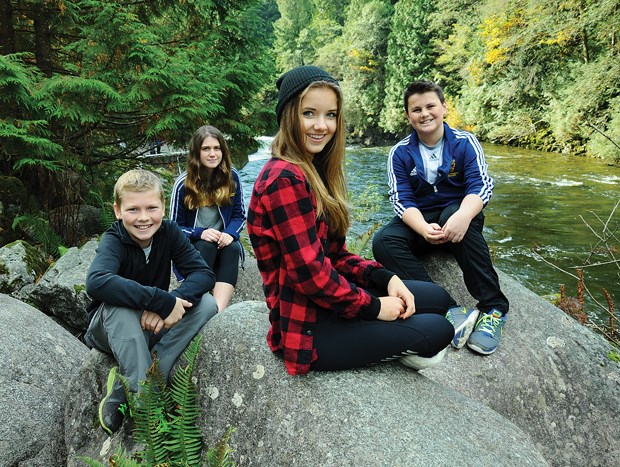For the last three years, Collingwood School has participated in the Capilano Watershed Project, an integrated curriculum program based on David Sobel's theory of place-based education.
Students learn about the world water crisis in a variety of subjects using the local landscape as their classroom. Jessica Richmond, an outdoor education teacher at Collingwood School, spearheaded the program with the goal to teach students about the scarcity of water around the world using Cleveland Dam to examine the topic in a realworld situation.
During the project students discussed where their water comes from, how much they consume and how it gets to them. Over the course of two weeks students examined maps of freshwater availability in Geography, discussed First Nations history in Social Science, calculated their water usage in Math and learned about salmon spawning in Science. During a full day at the Cleveland Dam, students discovered the ecology of the Capilano River, the watershed that supplies our water, and visited the salmon hatchery to learn more about the salmon spawning process.
Using the local community and environment as a classroom to discuss water issues is the basis of place-based education.
With an emphasis on hands-on, real-world learning, this approach to education helps students connect to their local community, increase academic achievement, and gain a better appreciation for the natural world, while highlighting their commitment to serving as active, contributing citizens.
Leaving the classroom and visiting the Cleveland Dam helps to humanize the issues of water scarcity in the world, while connecting to the topic in each of their classes helps them better understand the issues from different perspectives.
The program has grown to include participation from more departments at Collingwood and initiatives from school clubs like the Bring your Own Water Bottle campaign. The ultimate goal of this project is to positively influence our school community to understand water issues and make changes in their water usage now and in the future.
If students walk away asking themselves what they can do to affect change then the project is a success.
This piece was originally published in the North Shore News print edition as part of a special Private Schools advertising feature. The content was written and submitted by North Shore private schools.



